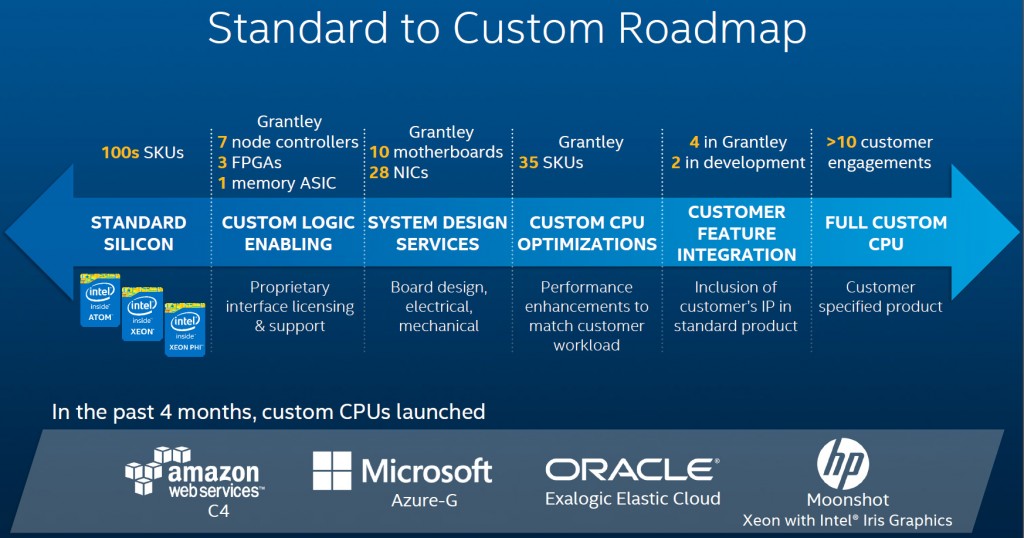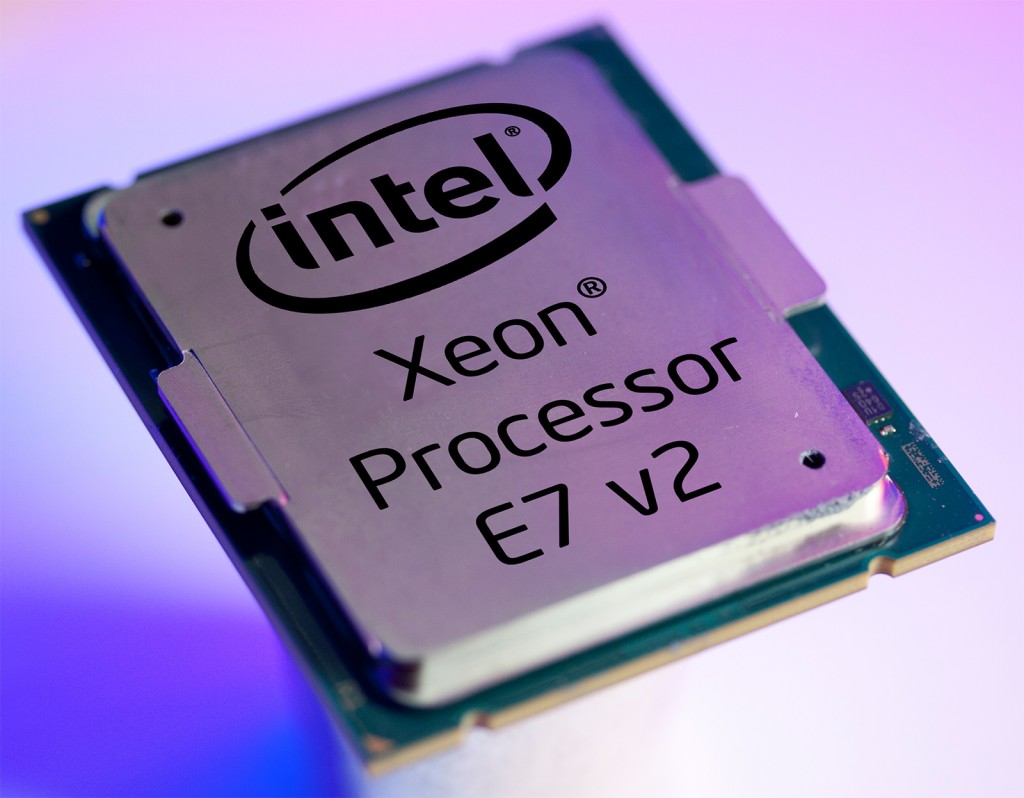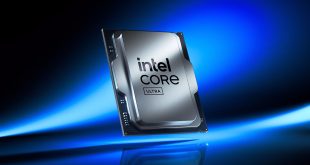The needs of modern cloud datacenters require developers of microprocessors to implement certain custom functionality into their products. As reported, Intel Corp. has incorporated multiple special-purpose technologies into its latest Xeon platform and offers optimized versions of CPUs to select customers. However, the company still does not offer chips that are designed for particular clients from the ground up. This is something Intel will do next year.
“We are well into the semi-custom product, we will be into the custom product space over the next year or so,” said Stacy Smith, chief financial officer of Intel, in an interview with Barron’s.
Intel has a special roadmap for its custom products. Intel can customize its server platforms or processors themselves to support custom controllers, FPGAs or even memory solutions. Intel can also optimize performance and power consumption of chips for certain workloads and deployments. At present Intel has 35 custom Xeon processors that belong to the Grantley platform. Intel can also include intellectual property of its customers into its standard microprocessors. For example, four of such features are already present in the latest-generation Xeon “Haswell-EP” central processing units and two more features are in development for upcoming chips.
Intel understands that the only trump the competing architectures or designers of server processors will have against it when they manage to hit performance targets of modern datacentres will be customization and ability to maximally tailor their offerings for particular clients. Intel knows that its indisputable trump is high-performance x86 architecture; therefore, it needs to ensure that software is tailored for its instruction set, not for ARM or Power. Thus, Intel wants to take the potential advantage of customization away from its hypothetic rivals by working very closely with large customers like Amazon Web Services, Google, Facebook or Microsoft. As a result, they will keep using Intel’s x86 processors and will not deploy chips powered by competing architectures.
“We are building in the capabilities to start to do custom products of the big players, which they love, and which lets us partner more deeply to help them solve the problems that they need to solve over the next couple of years,” said Mr. Smith.

At present Intel is working with ten customers on full custom central processing units, which will be developed from scratch keeping in mind particular requirements. Such CPUs are going to contain IP from clients, custom I/O configuration and special configuration of execution engines.
“With the cloud guys, work directly with the big cloud players, such that we can take some of their secret sauce that they want, and integrate it into the hardware level,” explained the CFO of Intel. “Anything that you can move from software to hardware, you can improve the performance and decrease the cost, sometimes by an order of magnitude. So you can make a huge improvement in cost and performance.”
It will be very interesting to see how Intel adjusts its research and development process in order to maintain costs and product cycles while offering highly-custom processors for its server clients.
Discuss on our Facebook page, HERE.
KitGuru Says: The ironic thing that Intel faces today is that the very reason why it became the dominant player on the server market (and why it could actually become a big player on the server market!) was the offering of industry-standard products with industry-standard infrastructure. Intel-based servers are still easy to build, easy to maintain and easy to fix. A major reason why Intel success’s formula no longer works at huge cloud datacentres is that nowadays the cost of power required to run a datacentre by far exceeds any additional expenses caused by custom hardware.
 KitGuru KitGuru.net – Tech News | Hardware News | Hardware Reviews | IOS | Mobile | Gaming | Graphics Cards
KitGuru KitGuru.net – Tech News | Hardware News | Hardware Reviews | IOS | Mobile | Gaming | Graphics Cards



